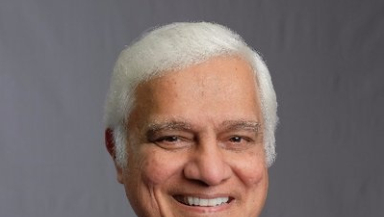
There's one thing your lecturers never tell you at theological college. It's probably because they've marked too many of your essays and heard too many of your trial sermons, and don't think it will ever be an issue.
It's this: you're standing at the door after the service and someone looks you in the eye and tells you, "Pastor, that was a wonderful sermon. You're such a good preacher."
What on earth are you supposed to say?
I can't say it happened all that much when I was preaching every week, but it did occasionally, and it troubled me. Compliments are always nice, but it never seemed right to take them for preaching. Part of it, of course, is being British; we sort of assume everything's alright unless anyone actually complains, and we tend not to do emotion. A compliment is capable of reducing the average introverted pastor to inarticulate embarrassment.
When an expression of genuine appreciation finds its way into church, you have to decide how to handle it. I was never quite sure. For one thing, you don't always want people to like what you're saying; sometimes you want them to be troubled by it. And even if it has the effect you planned, still, it's a sermon, not a chocolate cake. While you might have put the time in, it's nothing without God – and while God is to be praised, he is not to be complimented on a good bit of work. So here are a few things to help pastor and people think things through.

First, what people are trying to say isn't how great the preacher is, but how great God is. If you're a pastor, remember that if someone says they loved a sermon you preached they're really saying that God spoke to them through it. That's wonderful; he's changed someone's life, maybe in a large way or maybe just a little, and he's done it through you – but it's still God who's done it. They want to thank him, and you're the one who's standing there.
Second, you can downplay the compliment while pointing them back to Jesus. So a few sentences like, "Yes, it's a wonderful text" or "I'm glad it meant that to you" can be really helpful. It affirms the experience of God's grace people are sharing with you while diverting their attention from you back to God.
Third, don't take what people say too seriously. This is good for negative comments as well as positive ones, but positive comments can be spiritually dangerous. They make us think more of ourselves than we should. We begin to think, not "I have a great God," but "Maybe I am a pretty good preacher after all." That's the slippery slope to a prideful personality cult.
Fourth, if you're a member of a congregation, ignore your pastor's reticence. Tell her when you appreciate the message she's brought, and if you can be specific, do. She needs feedback, and it's up to you to give it. Normalising conversations about God is good. Conversely, if she's preached something you don't like, you don't have to tell her at all, and certainly not on the door on your way out; that's just bullying.
Fifth, pastors: you're only human. You might have put blood and toil, tears and sweat into a sermon and find it bores people rigid. You might put the same effort into something that turns out to be an extraordinary gift to the congregation. It's nice to have that recognised. But in the end, we have to believe that God knows what he's doing with our words, and trust him to make them matter.
Follow Mark Woods on Twitter: @RevMarkWoods

















